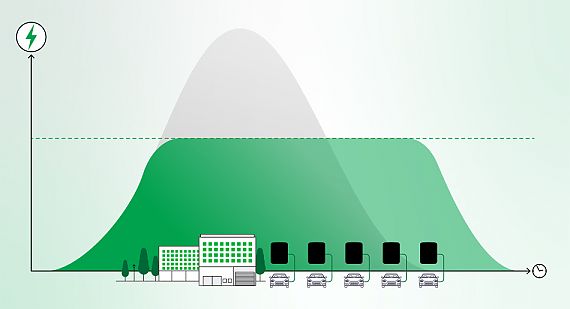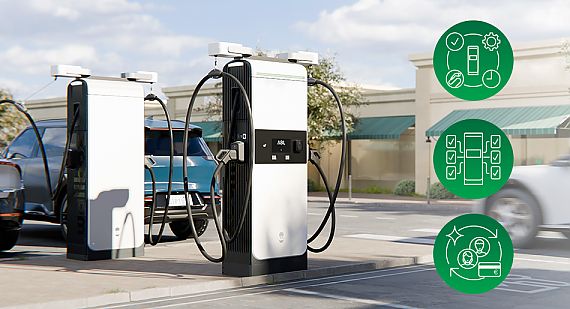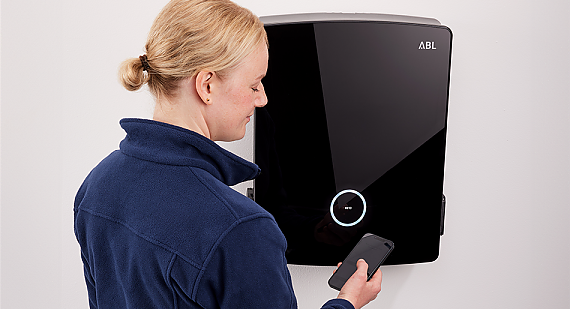Theresa Lorsch
19. December 2023

What is ISO 15118 all about?
The most important information for EV drivers
Electric driving should be as simple as possible. Enabling user-friendly and intuitive charging processes for EV drivers makes a significant contribution to this. An important element of this is the ISO 15118 communication standard. But what is ISO 15118 all about and how does it make life easier for electric drivers? In this blog post, you will find out what the ISO 15118 standard includes, how electric drivers can benefit from Plug & Charge and under what conditions Plug & Charge can be used.
The ISO 15118 standard
ISO 15118 is an international series of standards developed by the International Electrotechnical Commission (IEC) in cooperation with the International Organization for Standardization (ISO). Its main focus is on bidirectional – i. e. two-way – communication between electric vehicles and charging stations. In addition to feeding electricity from electric vehicle batteries (Vehicle-2-grid) back into the public power grid, charging without additional authentication (Plug & Charge) also plays a key role.
The feature Plug & Charge (PnC)
The Plug & Charge (PnC) feature is part of the ISO 15118 series of standards. The advantage of the corresponding ISO 15118-2 standard for users is that manual authentication via RFID, charging card or app is no longer necessary when starting a charging process. To start or end a charging process, users only need to insert or remove the plug from the electric vehicle. Authentication at the charging point and billing of the charging process are fully automated.
What requirements must be met in order to use Plug & Charge?
Plug & Charge is a new technology that has been continuously developed by all relevant stakeholders since its introduction. So far, however, the number of providers of electric vehicles and charging stations that support the PnC standard has been limited. To be able to use the function, both the electric car and the charging station must support the PnC standard. The charging tariff for billing must also meet the Plug and Charge requirements. In order to be able to use the corresponding charging infrastructure, the charging certificate of the selected eMobility service provider must be stored in the electric vehicle. When the charging cable is plugged in, the stored information is then securely transmitted to the charging station. The ABL Wallbox eM4 is ISO15118 ready and fulfils the necessary hardware requirements for Plug & Charge.
Submit comment
Relevant articles
YTo0OntpOjA7aTo0NjExO2k6MTtpOjUyMTY7aToyO2k6NTE5OTtpOjM7aTo1MTgwO30=
98
czoyOiIzNSI7



